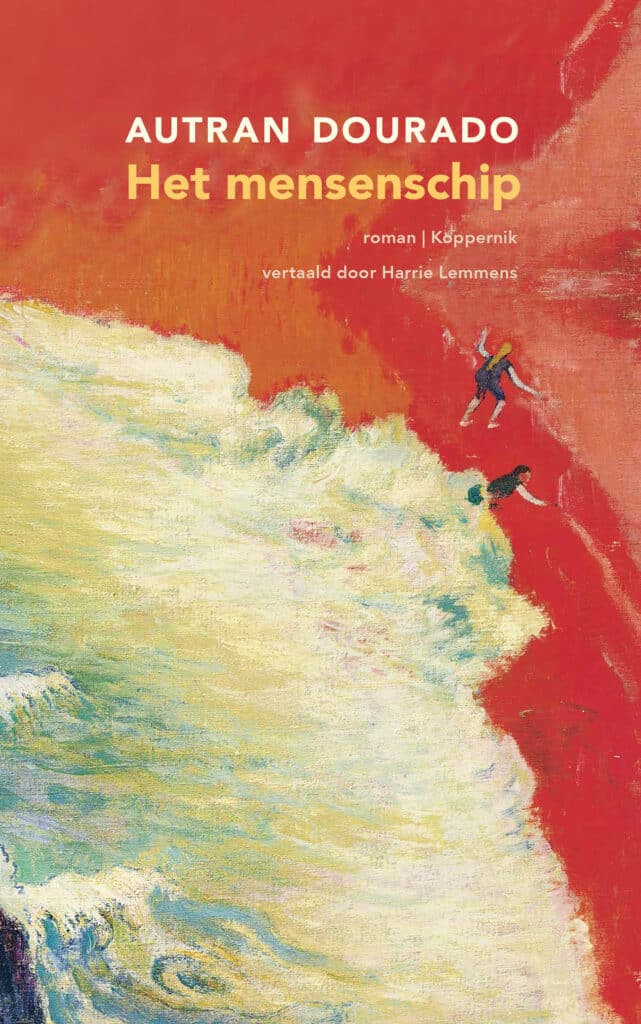Een buitenstaander of een onverwachte gebeurtenis die personages een spiegel voorhoudt en de boel op scherp zet – het is een klassiek literair gegeven. In de handen van de Braziliaanse schrijver Autran Dourado leverde dat een fascinerende roman op waarin er vooral veel gebeurt in de hoofden van de hoofdpersonen.
Ooit was Luzia het kindermeisje van Maria, nu past ze op Maria’s drie kinderen en woont ze met haar volwassen, donkere en zwakbegaafde zoon Fortunato in bij Maria en haar echtgenoot Godofredo. De meestal zachtaardige Fortunato doet vanwege zijn verstandelijke beperking soms onbegrijpelijke of gekke dingen, en is zelfs een keer opgenomen geweest in een gesticht, een plek waar hij nóóit meer naar terug wil. Als hij zich op een dag verliest in de geuren en kleuren van Maria’s lingerie en Godofredo ineens komt binnenlopen, springt hij uit angst uit het raam.

Van het ene op het andere moment is Fortunato een voortvluchtige, want Godofredo doet bij de politie aangifte van de vermissing van zijn pistool. In de handen van een verstandelijk beperkte jongen zou dat weleens levensgevaarlijk kunnen zijn, oordeelt luitenant Fonseca. Hij laat de stad afgrendelen, sommeert de inwoners binnen te blijven en stuurt zijn mannen op jacht naar Fortunato, met doden als doel. Ook Tonho, een visser met een alcoholprobleem en Fortunato’s enige vriend, gaat naar hem op zoek. Wie vindt hem eerder?
Herkansing
In zijn eigen land was de Braziliaan Autran Dourado (1926-2012) een gerespecteerd en veelvuldig bekroond auteur, onder meer onderscheiden met de Prémio Camões, de belangrijkste literaire prijs van Brazilië. In Nederland kreeg zijn werk tot nu nog niet echt veel voet aan de grond. In 1997 werd Dourado’s beroemde roman Opera der doden (1967) in het Nederlands uitgebracht.
Maar positieve besprekingen ten spijt verdween zijn werk daarna in de vergetelheid. Met de vertaling van Het mensenschip geeft uitgeverij Koppernik Dourado een herkansing; binnenkort verschijnt ook Opera der doden in een heruitgave. Zo krijgt ook het leespubliek een nieuwe kans om met deze bijzondere schrijver en zijn oeuvre kennis te maken.
Fictief eiland
Het mensenschip speelt zich af op het fictieve eiland Boa Vista voor de Braziliaanse kust, een plek van vergane glorie, van het vasteland gescheiden door een zeearm van een kleine kilometer breed, ‘een lelijke vuile zee, een zee vol werk en olievlekken, een lelijke vuile zee, een zee van armoe, tegenspoed en rotte sinaasappels, een zee van vissers en zwarte werkers’. In de donkere nacht veranderde het eiland in ‘een schip alleen op de wereld’.
Op dat ‘schip’ (een verwijzing naar Plato’s allegorie Het narrenschip) bevinden zich allerlei kleurrijke figuren, die hun eigen stem krijgen: naast Fortunato, Maria, Tonho, Fonseca en Godofredo onder anderen ook pater Miguel, drie gedetineerden, de jonge soldaat Domício – een jongen nog die voor het eerst een belangrijke opdracht krijgt –, en een paar dames van plezier.
De dag van de klopjacht op Fortunato blijkt een dag van ommekeer voor hun allen. Pater Miguel, toch al wankel, valt definitief van zijn geloof. De gedetineerden beramen een list om te ontsnappen. En terwijl de ene prostituee droomt van de liefde en een ander van een kind bevalt, beseft Maria dat ze van Godofredo walgt en droomt Fonseca er intussen van Maria tot de zijne te maken.
Innerlijke monologen
Hoe het hen vergaat, en vooral hoe het Fortunato en Tonho vergaat, verneemt de lezer via hun innerlijke monologen. De schrijver kruipt in het hoofd van de personages, waar het een drukke, rommelige boel is: hun gedachten buitelen over elkaar heen, herhalen zich en spreken elkaar tegen, reageren en raken in de war.
Niet zonder reden vergelijkt vertaler Harrie Lemmens in zijn verrijkende nawoord, waarin hij Dourado’s werkwijze en literaire verwijzingen toelicht, diens stijl met de Portugese schrijver-psychiater António Lobo Antunes, die andere grootmeester ‘van het grillige gedoe in ons brein’.
Poëtische stijl
Het is een bijzondere manier van vertellen, vol zintuigelijk waarnemingen, waar je je als lezer aan moet overgeven, als het ware door moet laten meedrijven. Fonseca bijvoorbeeld droomt zich een weg uit zijn treurige bestaan door te denken aan ‘nachtclubs vol licht, vrouwen vol licht, met rouge, rouge en lipstick, restaurants, neonreclame. Rood en groen, nu eens groen, dan weer rood. Groen en rood. De vrouwen rood en groen, lichten in de nacht.’
En als Dourado Tonho laat vechten met de woeste zee, weerspiegelt zijn grillige, poëtische taal de beukende golven en zit je daar als lezer samen met de visser in dat hotsebotsende bootje, dronken van de cachaça en de onstuimige watermassa.
Dezelfde toewijding die voelbaar in zijn roman zit, vraagt Dourado van zijn lezers. Soms is dat even doorzetten, maar de beloning is een spannende leeservaring, als een wervelwind.
Vertaald uit het Portugees door Harrie Lemmens
Koppernik, € 24,50
